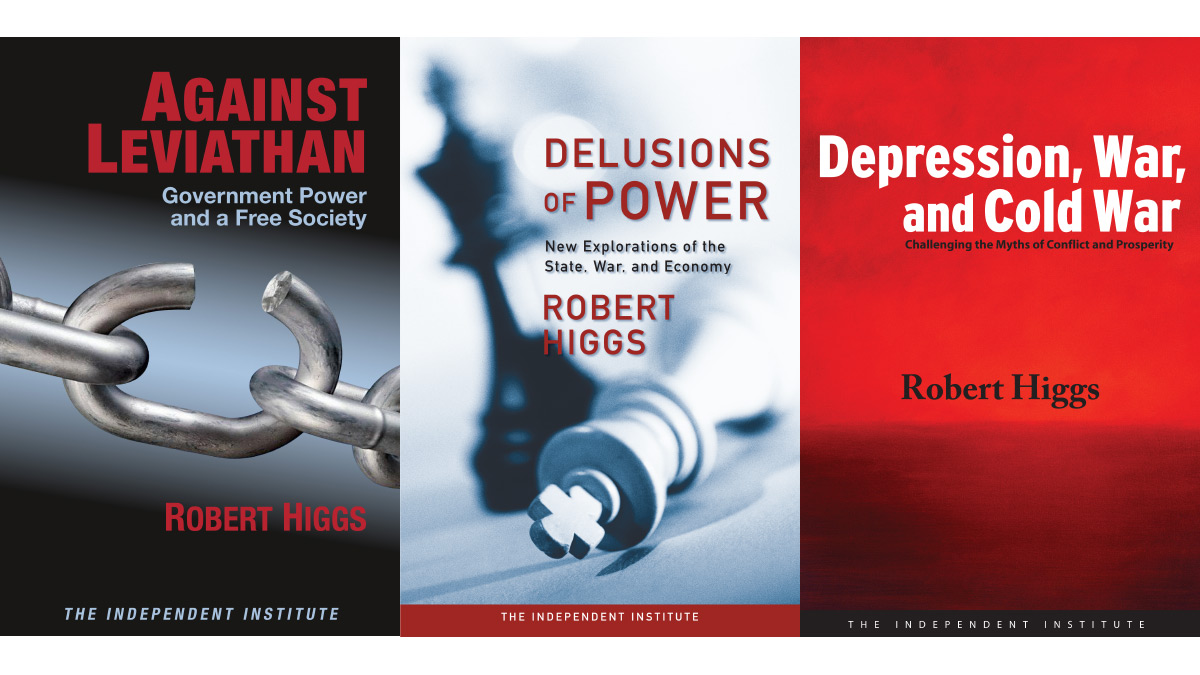Why has the U.S. government grown so vast and powerful that it increasingly threatens the civil and economic liberties of ordinary Americans? Nothing promotes the growth of the state as much as wars and economic crises. We see ample evidence of this connection when we examine the government’s response to the September 11th terrorist attacks, but the trend can be seen throughout U.S. history.
During World War II, the U.S. government created and operated a vast system of central planning, as I describe in detail in my previous books Crisis and Leviathan and Depression, War, and Cold War. After the war, much of this system was abandoned, but it was revived in large part during the Korean War. When that war ended, many of its controls were legally retained, ready for operational reinstatement whenever the president might so order under the authority of the Defense Production Act of 1950. This statute gives the president legal authority to control virtually the entire U.S. economy whenever he chooses to do so and states that the national defense authorizes such a government takeover.
In my latest book, Delusions of Power : New Explorations of the State, War, and Economy, I examine fundamental issues related to the state’s legitimacy and to the supposed safeguards against government intrusion. History is our best teacher here, as shown especially by an examination of national crises and their consequences: the world wars and the Cold War; the post–9/11 nationalsecurity state; and major economic calamities, including the financial crisis of the 2000s. In exploring the past with an eye to the future, we find that many common assumptions about the U.S. government are not only false but dangerous.
President Obama’s executive order National Defense Resource Preparedness, issued on March 16, 2012, stipulates in detail how the president will exercise longestablished powers over energy, transportation, human resources, raw materials, and so forth—stating in particular the subordinates to whom he will delegate various specific powers, among other things. It shows plainly, as I emphasize in Delusions of Power, that private control of economic life in the United States, to the extent that it survives, exists solely at the president’s pleasure and sufferance. Whenever he chooses to put into effect a fullfledged operational fascist economy, controlled from his office, he has the statutory power to do so; all he has to do is to murmur the words “national defense” and give the orders.
Subjecting the public to the whims of presidential discretion is a recipe for destruction of our remaining freedoms. As I maintained at the Independent Institute’s 25th Anniversary Gala for Liberty in November 2011, individual liberty is the foremost instrument by which we create and maintain many of the conditions, goods, and services that constitute material abundance and relieve many of the anxieties and pains that once accompanied social life for almost everyone.
The specific conditions of a free society—private property rights, secure contracts, genuine rule of law—are prerequisites for the maintenance and enhancement of our economic well-being. At this late date, after we have witnessed the personal horrors and economic disasters brought about by socialist central planning, it should not be necessary to go on preaching the gospel of individual freedom and the limitation of government, yet we all know that many people still do not understand these essential matters and often act politically to thwart the operation of a genuinely free society.
If we do not resist such government intrusion, as exemplified by executive order National Defense Resource Preparedness, the boundaries of our liberties will be constricted further with each new episode of crisis. This struggle requires education, constant awareness, and the courage to think, speak, and act forthrightly among our more conciliatory fellows who would rather take the easy way of going along to get along, even when society at large is going along toward a plunge into complete tyranny or a long, steady descent toward totalitarianism. Americans should not reassure themselves that it cannot happen here.




















